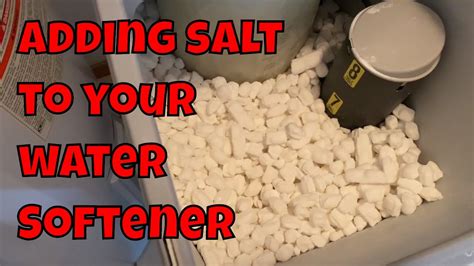Get Soft Water: Master Your Water Softener Salt
Hard water. That frustrating mineral buildup on your showerhead, the dull film on your glassware, the itchy feeling after a shower – it's a common problem with a common solution: a water softener. But even with a softener, there's a crucial element that often gets overlooked: the salt. Understanding your water softener salt is key to ensuring its efficiency and longevity, saving you money and keeping your water beautifully soft.
This comprehensive guide will walk you through everything you need to know about water softener salt, helping you master its use and maintain optimal performance from your water softener system.
What Kind of Salt Do Water Softeners Use?
Water softeners don't use just any table salt. They require water softener salt, also known as evaporated salt or solar salt. This type of salt is specifically purified to have a very low level of impurities like calcium and magnesium. These impurities, present in regular table salt, can interfere with the ion exchange process within the water softener, reducing its effectiveness and potentially damaging the resin beads. Using regular table salt is a common mistake that can compromise your system.
Why Not Use Table Salt?
Table salt contains anti-caking agents and other additives that can foul your softener's resin bed, leading to reduced efficiency and requiring more frequent regeneration cycles. This not only wastes salt but also shortens the lifespan of your water softener.
How Much Salt Does a Water Softener Use?
The amount of salt your water softener uses depends on several factors:
- Water Hardness: The harder your water, the more salt your softener will consume. Regular testing of your water's hardness is essential to determine the appropriate salt usage.
- Household Size: Larger households with more water usage will naturally require more salt.
- Softener Size: Larger capacity softeners generally use more salt per regeneration cycle.
- Regeneration Frequency: This depends on your softener's settings and your water usage.
How Often Should I Add Salt to My Water Softener?
Most water softeners have a visible salt level indicator. Regularly check this indicator to ensure you don't run out of salt. Running out of salt will result in your water softener failing to regenerate properly, leading to hard water throughout your home. Aim to refill your salt tank before it's completely empty to avoid interruptions in your soft water supply. Many homeowners prefer a schedule of adding salt every 2-4 weeks, but this is highly variable and depends on the factors mentioned above.
What Happens if I Run Out of Salt?
Running out of salt means your water softener won't be able to regenerate. This will result in hard water being delivered to your faucets, showers, and appliances. You'll notice the telltale signs of hard water: mineral buildup, spots on glassware, and potentially even damage to appliances over time. Replenishing the salt will eventually restore soft water, but the system may need a full regeneration cycle to return to optimal performance.
Different Types of Water Softener Salt: Pellets vs. Crystals
While both pellet and crystal forms of water softener salt effectively soften water, there are some differences:
- Pellets: Generally dissolve more slowly, potentially leading to less frequent refills. However, they can sometimes bridge (form a crust) on the top of the salt, hindering proper dissolution.
- Crystals: Dissolve more quickly, which can be an advantage in high-usage households. They are less prone to bridging but may require more frequent refills.
The best type depends on your individual needs and water softener model. Experimentation might be needed to determine which works best for your system.
Maintaining Your Water Softener: Beyond the Salt
While salt is crucial, maintaining your water softener involves more than just keeping the salt tank full. Regularly inspect the brine tank for any signs of corrosion or leakage. Consider scheduling annual maintenance by a qualified technician to ensure your system is operating efficiently and to prevent potential problems.
By understanding and mastering the use of water softener salt, you'll be well on your way to enjoying the benefits of consistently soft water in your home – saving money on appliances, improving the lifespan of your plumbing, and enjoying a softer, more comfortable experience.

